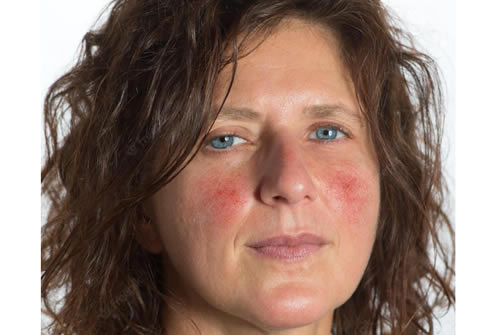Rosacea is a chronic skin condition that causes redness, flushing, and bumps on the face. While there is no cure for rosacea, there are a number of treatment options available to help manage the condition and improve the health and appearance of the skin. In this article, we’ll explore the latest rosacea treatments and their effectiveness.
Topical medications are a common treatment option for rosacea. These medications are applied directly to the skin and may include:
- Antibiotics: Antibiotics can help to reduce inflammation and the proliferation of bacteria on the skin. Topical antibiotics, such as metronidazole and erythromycin, are often used to treat rosacea.
- Azelaic acid: Azelaic acid is a naturally occurring compound that has anti-inflammatory and antibacterial properties. It is available as a cream or gel and is often used to treat rosacea.
- Ivermectin: Ivermectin is a medication that has been shown to be effective in reducing the redness and bumps associated with rosacea. It is available as a cream or lotion.
Oral medications may also be used to treat rosacea. These medications are taken by mouth and may include:
- Antibiotics: Antibiotics can help to reduce inflammation and the proliferation of bacteria on the skin. Oral antibiotics, such as doxycycline and minocycline, are often used to treat rosacea.
- Isotretinoin: Isotretinoin is a medication that is usually used to treat acne, but it has also been shown to be effective in treating rosacea. It is a powerful medication that can have serious side effects, so it is usually reserved for severe cases of rosacea.
Laser treatments are another option for treating rosacea. These treatments use lasers or intense pulsed light (IPL) to reduce the appearance of redness and visible blood vessels on the skin. Laser treatments are typically well-tolerated and may be effective in improving the appearance of rosacea, but they may need to be repeated to maintain results.
There are a number of treatment options available for rosacea, including topical medications, oral medications, and laser treatments. The most appropriate treatment will depend on the severity of the condition and the individual’s specific needs and goals. It’s important to work with a dermatologist to develop a treatment plan that is tailored to your needs and to monitor the effectiveness of the treatment over time.

